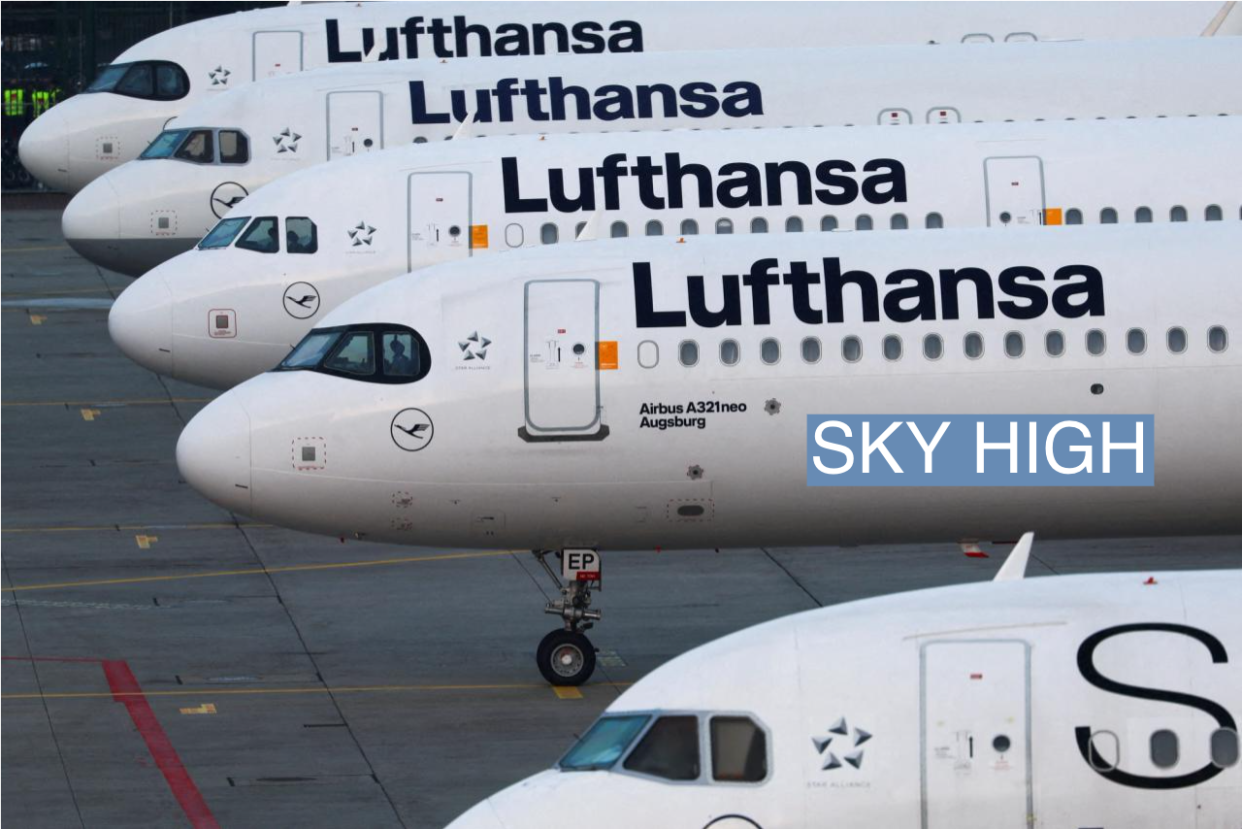Price of flying set to soar as airliners pass costs of sustainable fuel to passengers

Insights from The Financial Times, Reuters, Bloomberg, and National Geographic
The News
A major German airline has announced it will increase some flight prices by up to €72 ($77), passing part of the cost of sustainable aviation fuel on to passengers.
Lufthansa said it would impose the surcharge on flights departing from Europe as part of its effort to comply with a European Union rule taking effect in 2025, that mandates at least 2% of airlines’ fuel needs to be from sustainable sources.
SIGNALS
Sustainable fuel is both scarce and expensive
Sustainable aviation fuel, which is made from waste oil or agricultural feedstock, is the aviation industry’s primary strategy to reach its 2050 net zero target, Bloomberg wrote. But the fuel is in short supply and current production accounts for a fraction of the global requirements. In 2023, manufacturers produced 500,000 tonnes of the cleaner burning fuel, but Lufthansa alone used 8.45 million tonnes of fuel in the same period, The Financial Times noted. The cost of the cleaner fuel is also about double the price of traditional fossil fuels, which has made aviation companies resort to price hikes for consumers to keep their margins
Flying will continue to get more expensive
The decarbonization of the aviation industry is expected to cost $5 trillion, according to analysts at McKinsey. And airlines have warned passengers that they will have to bear some of the burden of the green transition, Bloomberg reported. Some countries are taking a more direct approach: Earlier this year, Singapore and Malaysia introduced taxes on airfares to help finance the purchase of sustainable fuels and offset carbon emissions. But sustainability, Bloomberg argued, may not help consumers warm to the change: “It means little price respite for flyers who’ve been whacked by soaring prices since air travel resumed after the pandemic. Now, they’ll have to pay to neutralize aviation’s carbon footprint, too.”
It’s not clear whether sustainable aviation fuel will even reduce emissions
While some studies show that sustainable aviation fuel can help reduce emissions of an aircraft by up to 90% compared to an aircraft that uses traditional fossil fuels, according to National Geographic, different types of sustainable aviation fuel can have different emissions profiles depending on how they’re produced. Flights also cannot run entirely on the cleaner fuel yet; and because most is produced using feedstock crops, environmental groups have argued that this perpetuates the loss of carbon sinks, like peatlands and forests, in favor of monocrop agriculture. Other types of low-emission fuels are being developed, but it could take years before they’re available. “In the near term, at least, there’s no way to markedly reduce aviation emissions without reducing aviation,” The New Yorker argued.

